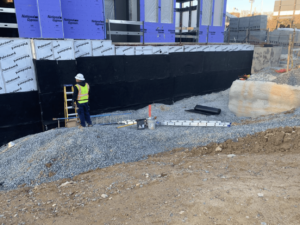How Residential Waterproofing Can Prevent Costly Repairs
Water damage is one of the leading causes of expensive repairs for homeowners. Leaky basements, mold growth, and structural damage can all result from unchecked water infiltration. The good news is that residential waterproofing can serve as a powerful preventative measure to keep your home dry, stable, and protected from water-related issues. In this post, we’ll explore how residential waterproofing works and why it’s essential to safeguard your property from costly repairs.
The Risks of Water Damage
Without adequate waterproofing, water can enter your home in several ways:
- Cracks in the foundation
- Improper drainage around the house
- Leaky windows or doors
- Faulty plumbing or sump pumps
Once water seeps into your home, it can lead to a range of problems, including mold growth, structural damage, and weakened foundation walls. The longer these issues persist, the more expensive and difficult they become to repair.
Benefits of Residential Waterproofing
- Prevent Foundation Damage: Waterproofing helps protect your home’s foundation by keeping moisture out, preventing cracks and deterioration that could lead to costly repairs.
- Reduce Mold and Mildew: Mold thrives in damp environments, and once it takes hold, it can be difficult to eradicate. Waterproofing your basement or crawlspace helps maintain a dry environment, reducing the risk of mold growth.
- Maintain Property Value: Water damage can significantly lower the value of your home. By investing in waterproofing, you protect your home’s long-term value and avoid devaluation caused by moisture damage.
- Save on Long-Term Repairs: Waterproofing systems such as French drains, sump pumps, and vapor barriers can save homeowners thousands of dollars in repair costs by preventing issues before they escalate.
Key Waterproofing Solutions
- Interior Waterproofing: Sealing cracks, installing sump pumps, and creating vapor barriers.
- Exterior Waterproofing: Addressing drainage issues, installing French drains, and sealing foundation walls from the outside.
By taking proactive steps through residential waterproofing, you can avoid the high costs of repairing foundation damage, mold remediation, and structural fixes.

